When Zhang Chengying, 32, told her parents that she and her husband had decided not to have children, her parents were shocked and asked if there was anything wrong with their daughter.
Zhang explained that he had no problem, it was just that the couple wanted to be a "DINK" couple, which stood for "Double Income, No Kids," meaning both people earned income and chose not to have children.
“My mother said she was over 60 and would be laughed at without her grandchildren,” Zhang said. “But would I change my life so that my mother wouldn’t be laughed at? No, I wouldn’t.”
The Zhangs haven’t reached their dual-income goal yet, but that could change soon. Zhang, who recently graduated from a medical school in Shandong Province, is looking forward to applying for a research position at a hospital later this year. Her husband will also be a civil servant.
Currently, the couple is enjoying their free time to travel, stay up late, and sleep in without having to worry about their children.
On July 20, the couple began a nearly 5,500 km trip . The trip was meticulously planned by the couple, passing through 3 provinces of China in nearly 3 days.
"I definitely wouldn't be able to be this free if I had kids," Zhang said. "Because of parental responsibilities, some of my friends rarely have time to go out and see me."
China has ended nearly three years of strict Covid-19 restrictions, but the pandemic has had a lasting impact on the economy and people's mental health.
For many, financial stress and anxiety have left them skeptical about the future, leading to a tendency to not have children. This trend was evident in China before the pandemic, but has become more widespread as the country has been shut down, many activities have been halted, and economic uncertainty has spread.
The reluctance of young couples to have children has been partly demonstrated when in 2022, China's population decreased for the first time in 61 years. According to the National Bureau of Statistics of China, the country's population in 2022 decreased by 850,000 people compared to 2021. The fertility rate of mothers giving birth to their first child decreased from 0.7 in 2019 to 0.5, and the average age of women giving birth to their first child increased from 26.4 to 27.4.
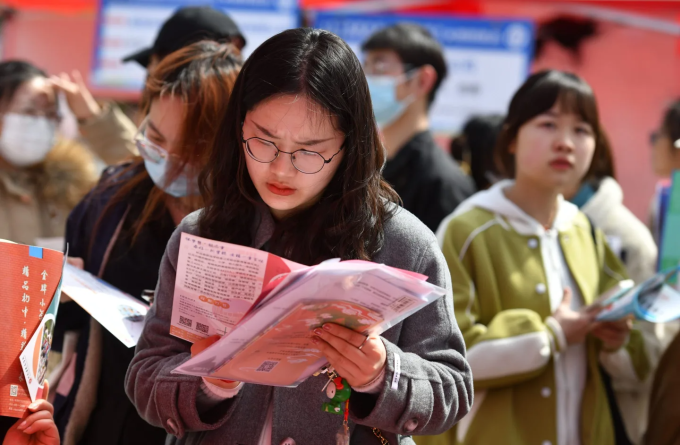
Chinese youth at a job fair. Photo: China News
Yang Xiaotong, 26, a freelancer in Shenzhen, shares Zhang's thoughts as she herself does not want to give up her current lifestyle and freedom to raise a child.
She and her husband, who married in April, said the three years of social distancing had had a big impact on their thinking. "We care more about ourselves, while our parents think we're becoming more selfish," Yang said.
She expressed that she felt a lot of pressure in running her own business. Some of Yang's friends had children, while others wanted to follow the DINK lifestyle or not get married.
"I realized that I wanted to travel the world rather than be confined to an 80-square-meter apartment in Shenzhen with my children. Many young people are focusing on improving their quality of life, because we cherish the time we have on this earth," Yang said.
Ren Yuan, a professor at the Population Research Institute of Fudan University, said the fact that many people are reluctant to have children and do not want to get married will have a long-term impact on China.
“With the marriage rate falling and the proportion of never-married people rising, China's birth rate is likely to remain low in the coming decades,” Ren said.
The rising cost of having a baby, combined with the current economic downturn, where one in five young people are unemployed, has led to many couples feeling they cannot afford to raise a child.
"After deducting rent and living expenses, my monthly income of 5,000 yuan ($700) is not much left," said Qu Yun, a 24-year-old nurse in Shandong province.
Qu Yun said the main reason she doesn't want to have children is because she doesn't have time or money, as she has to work 12 hours a day, without even time for lunch.
Despite the growing number of local governments and companies offering subsidies to encourage childbearing, Qu remains unconvinced. “It would be better if the government improved its guarantee of workers’ rights, such as overtime regulations and wage increases, rather than trying to persuade people to get married and have children,” Qu said.
Zhang, who is highly educated and could have a higher-paying job than Qu, also worries about not being able to provide for her child. Zhang said she has observed her relatives’ spending, especially on raising children amid the volatile economy.
"The cost of education is too high and I don't want my child to be born into such a stressful environment," Zhang said. "I don't know if I will change my mind when I'm 40, but right now, I'm determined not to have children."
Chen Weimin, a professor at the Institute of Population and Development Studies at Nankai University, said that the “hate for children” mentality could reach extremes and that many people could spread it on social media. However, according to the professor, China needs to ensure a society where people have more advantages when having children, with the goal of “building a child-friendly society”.
"Young people's desire to have children has clearly declined and there is a general anxiety about having children in China," Chen said.
Mr. Hoang (According to SCMP )
Source link












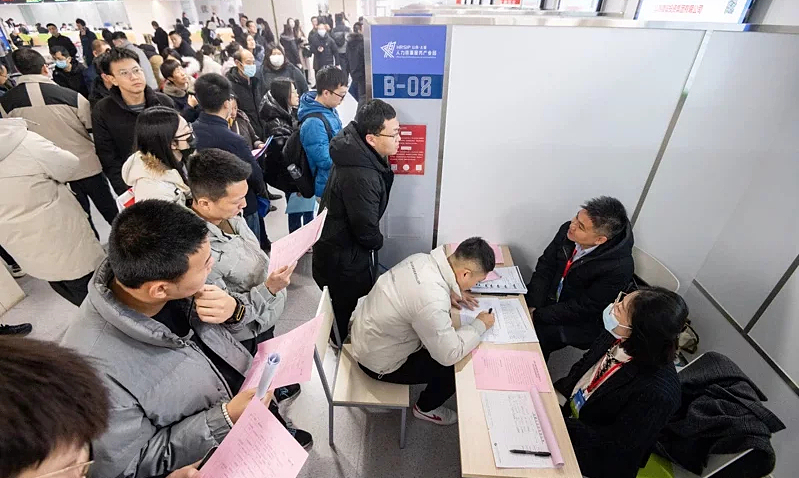
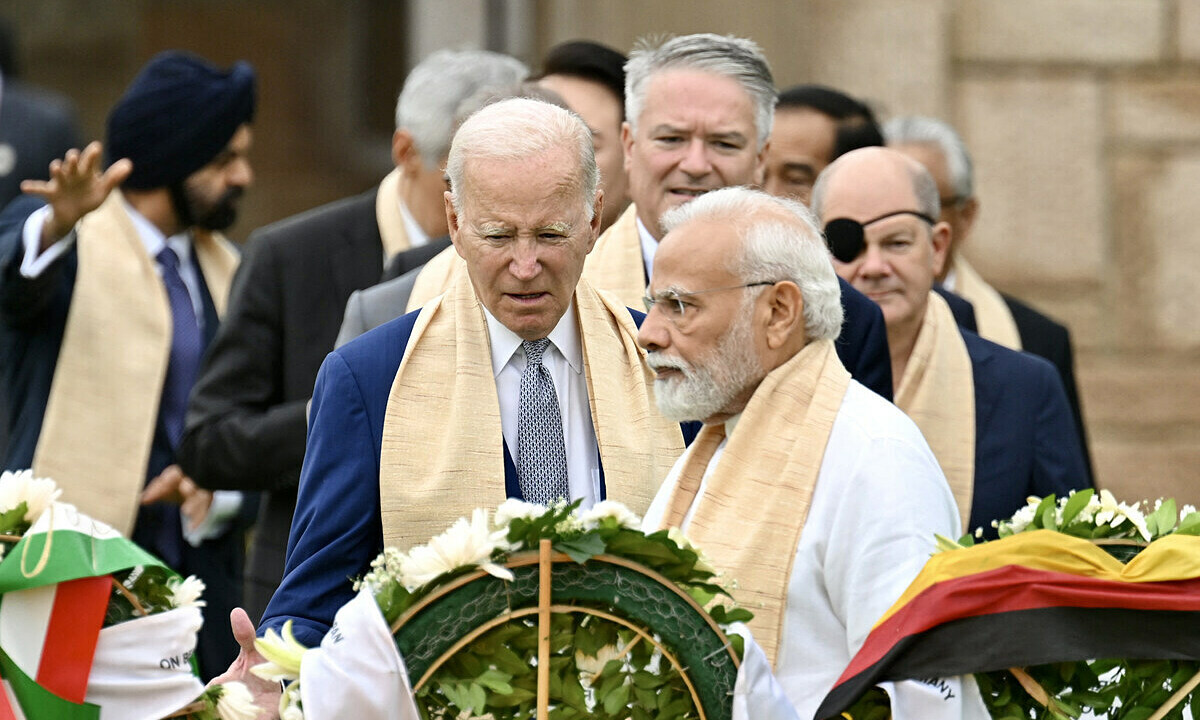






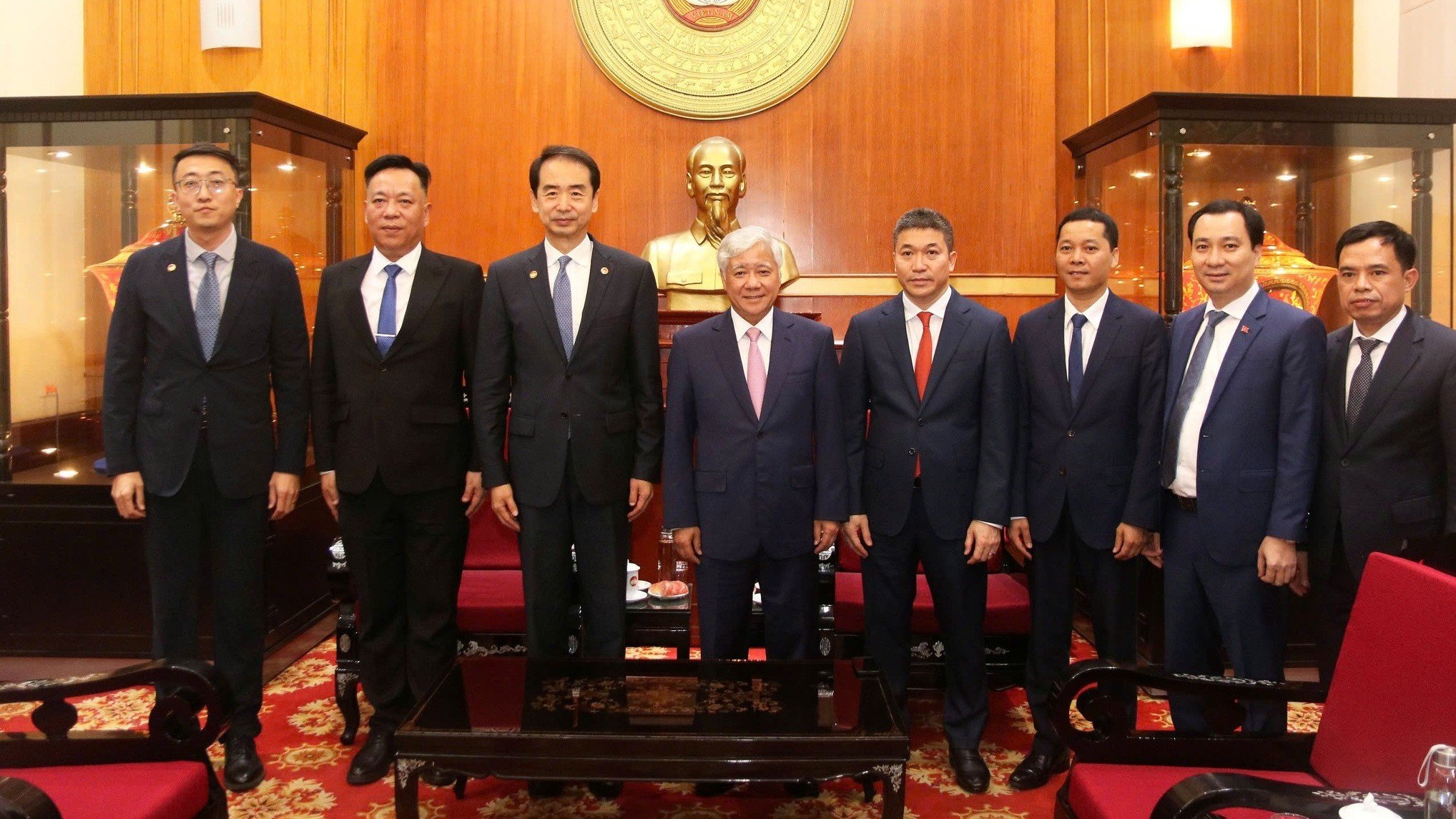











![[Photo] President Luong Cuong attends special political-artistic television show "Golden Opportunity"](https://vstatic.vietnam.vn/vietnam/resource/IMAGE/2025/8/22/44ca13c28fa7476796f9aa3618ff74c4)










































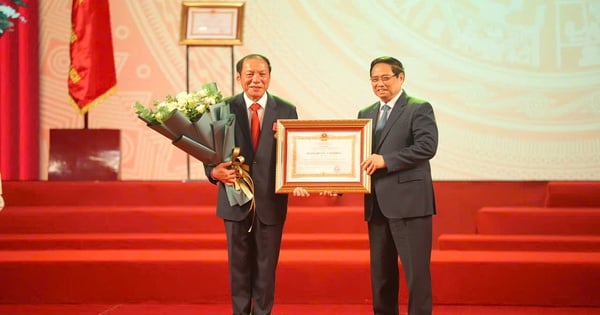

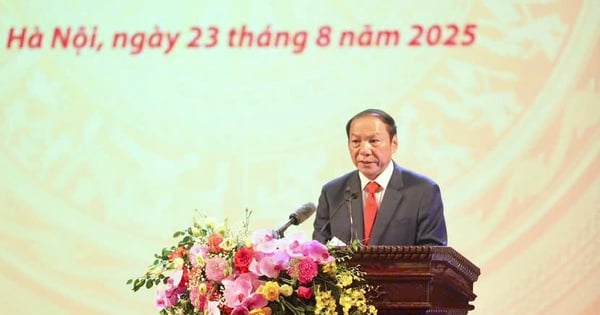

























Comment (0)